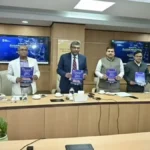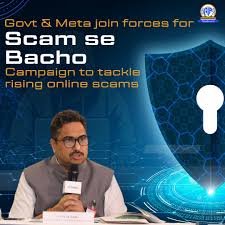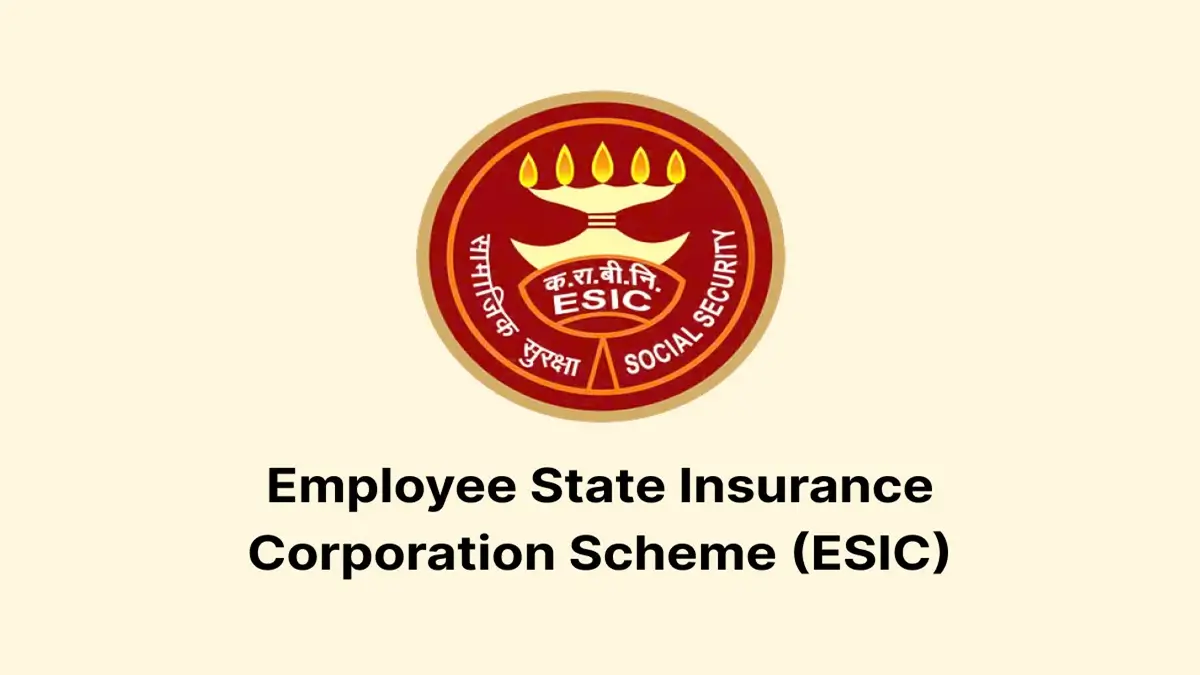Scam Se Bachao: Government and Meta Team Up to Fight Online Scams
Introduction to the Initiative
In a significant development aimed at combating the rising tide of online scams, the Indian government has partnered with Meta, the parent company of Facebook and WhatsApp. The initiative, dubbed “Scam Se Bachao” (Save Yourself from Scams), focuses on educating the public about online fraud and enhancing awareness regarding digital safety. As the digital landscape evolves, so do the tactics of cybercriminals, making this collaboration crucial in safeguarding citizens from financial fraud.
Objectives of the Initiative
The “Scam Se Bachao” initiative seeks to address the increasing number of scams reported across various online platforms. With the proliferation of digital transactions and online services, citizens are becoming more vulnerable to fraudulent schemes. The primary objectives include:
- Awareness Campaigns: Conducting extensive awareness campaigns through social media and public forums to educate users about the common types of scams, such as phishing, lottery fraud, and fake job offers.
- Training Workshops: Organizing workshops and webinars that provide practical tips on how to identify and avoid scams, including recognizing suspicious links and messages.
- Collaboration with Law Enforcement: Working closely with law enforcement agencies to track and apprehend scammers, thereby creating a safer digital environment for all users.
Expected Impact on Society
This partnership between the Indian government and Meta is expected to have a substantial impact on society by reducing the number of online scams and building a culture of digital vigilance. By empowering citizens with knowledge and tools, the initiative aims to foster a safer online ecosystem, enabling individuals to engage in digital transactions with confidence.
Conclusion
The “Scam Se Bachao” initiative marks a proactive step towards addressing the critical issue of online scams in India. Through a combination of awareness, education, and collaboration with technology companies, the initiative aspires to create a resilient digital community capable of navigating the complexities of online interactions securely.

Why This News is Important
Protecting Citizens from Financial Fraud
The increasing prevalence of online scams poses a significant threat to individuals’ financial security. By collaborating with Meta, the government is taking a proactive stance to protect citizens from potential financial loss and emotional distress caused by scams. Educating the public about these risks is crucial for fostering a more secure digital environment.
Promoting Digital Literacy
The “Scam Se Bachao” initiative emphasizes the importance of digital literacy in today’s technology-driven society. As more people engage in online transactions, understanding how to identify scams and protect oneself becomes vital. This initiative will help bridge the gap in digital knowledge, particularly among vulnerable populations.
Strengthening Trust in Digital Platforms
By addressing the issue of online scams, the government and Meta aim to restore trust in digital platforms. Citizens are more likely to engage in online services if they feel secure and informed about potential risks. This initiative can enhance user confidence in digital transactions and social media interactions.
Collaboration Between Public and Private Sectors
The partnership highlights the importance of collaboration between the government and private companies in addressing societal challenges. By leveraging Meta’s expertise in technology and communication, the initiative can effectively reach a broad audience and disseminate critical information quickly.
Enhancing Cybersecurity Measures
The initiative not only focuses on public education but also emphasizes the need for improved cybersecurity measures. Collaborating with law enforcement to track scammers is a vital aspect of creating a safer online environment, thereby reducing the overall incidence of cybercrime.
Historical Context
The rise of online scams can be traced back to the increasing use of the internet and digital platforms for communication and commerce. In India, the shift towards a digital economy has led to a surge in cybercrime, with scams becoming more sophisticated and prevalent. Notable scams, such as the 2019 call center scam, where fraudsters tricked people into disclosing personal information, have highlighted the urgent need for protective measures. Government initiatives like “Digital India” and the Cyber Crime Reporting Portal aim to enhance cybersecurity awareness. The collaboration with Meta represents a significant step in addressing these growing concerns by combining resources and expertise to combat online fraud effectively.
Key Takeaways from “Scam Se Bachao” Initiative
| Serial Number | Key Takeaway |
|---|---|
| 1 | The Indian government has launched the “Scam Se Bachao” initiative with Meta to combat online scams. |
| 2 | The initiative focuses on raising awareness about various types of online scams, such as phishing and fake job offers. |
| 3 | Training workshops and webinars will be organized to educate citizens on identifying and avoiding scams. |
| 4 | The partnership aims to restore trust in digital platforms by enhancing user confidence in online transactions. |
| 5 | Collaboration with law enforcement will help track and apprehend scammers, contributing to a safer digital environment. |
Important FAQs for Students from this News
1. What is the “Scam Se Bachao” initiative?
The “Scam Se Bachao” initiative is a partnership between the Indian government and Meta aimed at combating online scams and educating the public about digital safety.
2. Why was this initiative launched?
This initiative was launched in response to the increasing prevalence of online scams that target citizens through digital platforms, leading to financial losses and emotional distress.
3. What are the main objectives of this initiative?
The main objectives include conducting awareness campaigns, organizing training workshops, and collaborating with law enforcement to track and apprehend scammers.
4. How will the public be educated about online scams?
The public will be educated through various awareness campaigns on social media, webinars, and workshops that provide practical tips on identifying and avoiding scams.
5. Who can participate in the workshops?
The workshops are open to the general public, particularly targeting vulnerable populations who are more susceptible to online scams.
Some Important Current Affairs Links

















